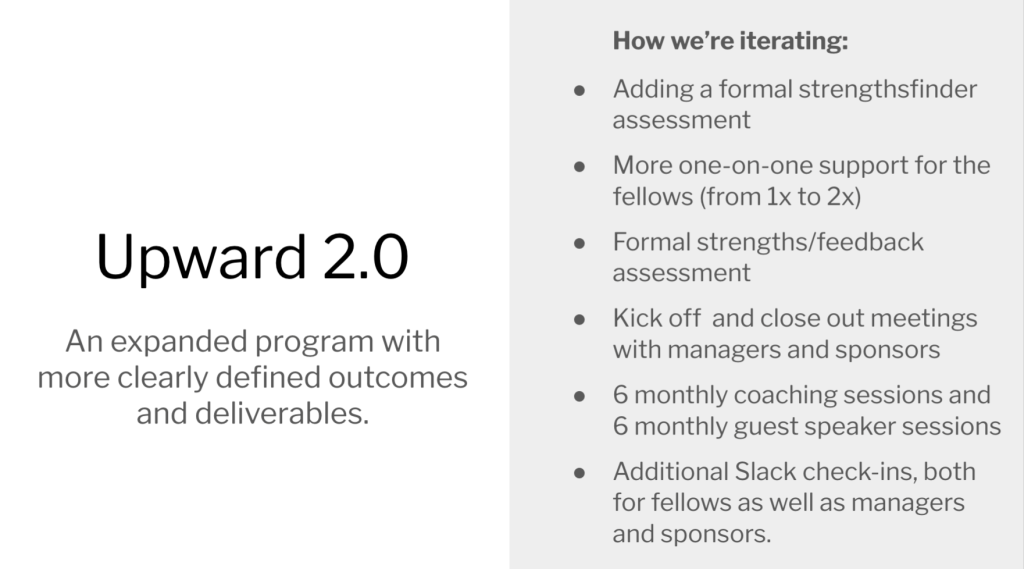
Upward and beyond
What happens next?
My RJI fellowship took me down two distinct pathways this year, both relating to the experiences of journalists of color working in local newsrooms.
First, in my research phase, I learned of the challenges facing these journalists, among them: low pay, overloaded schedules, distant and thinly stretched managers.
I built the Upward pilot program as a leadership accelerator around these core challenges, as well as the idea that local newsrooms could better retain journalists of color, especially in the early-to-mid-career range, by developing their talents as future leaders.
Perhaps more journalists of color would choose to stay with a company if they knew that the company had a clear plan to promote them in a year or two. Perhaps they would be more prepared to take on those expanded roles sooner, if only they had a full toolbox of frameworks and strategies.
But they cannot do it alone. One thing I’ve observed in leadership programs that I’ve attended and taught in is a lack of fully engaged stakeholders from the newsrooms. I watched participants complete robust and exciting training programs, then return home — only to face barriers, blockers and outdated thinking.
Unable to use their newly honed leadership and strategy skills in their old roles, these folks tend to leave their organization for their next role.
But.
What if they didn’t? What if it was a combination of their direct manager and an executive sponsor working to support this person and create new growth opportunities for them? What if everyone felt invested in the plan to grow and retain this next generation of leaders?
So that’s how Upward came to be. When we opened the application process last summer, I had no idea if we would get any interest. Were the requirements of the host newsrooms too intensive? Was the idea duplicative of internally provided training and guidance?
But we came to curate a cohort of six talented journalists of color.
And because it was a pilot program, we learned together, along the way.
One idea I had was to give the fellows unstructured time together, to see how they would handle it. Would they choose leaders by rotation? Would someone naturally emerge? Would they just find it useless?
When I surveyed the cohort mid-way through the program, I heard their feedback loudly and clearly: They wanted another way to use that time.
So we started having guest speakers to come in and discuss leadership and management techniques and topics of the fellows’ choosing. My fellow fellows Sisi Wei and Hannah Wise kindly agreed to be among our first guests, talking about executive presence and project management strategies.
I have lots of ideas for ways to improve and refine the program, like adding a formal strengths finder assessment and more small group meetings among the fellow/coach/manager/sponsors. I’d also like to do a training session specifically for the managers and sponsors, to help them fully engage not only with their fellow but their own peers in the program.
The first version of Upward focused specifically on creating a program that could increase skills quickly and develop a deep bench of support for the fellows.
In the next version of Upward, more support for the rest of the team and the entire institution will be designed and added.
If you are interested in nominating an Upward fellow for a future cohort, becoming a host newsroom for a future Upward cohort, or if you are interested in funding future iterations of Upward and beyond — join us to learn more at our Upward Q&A on May 20, 2022 hosted by RJI’s Executive Director, Randy Picht.
Interested in getting involved? Read more about my vision for Upward 2.0 and how you can support here.

Comments